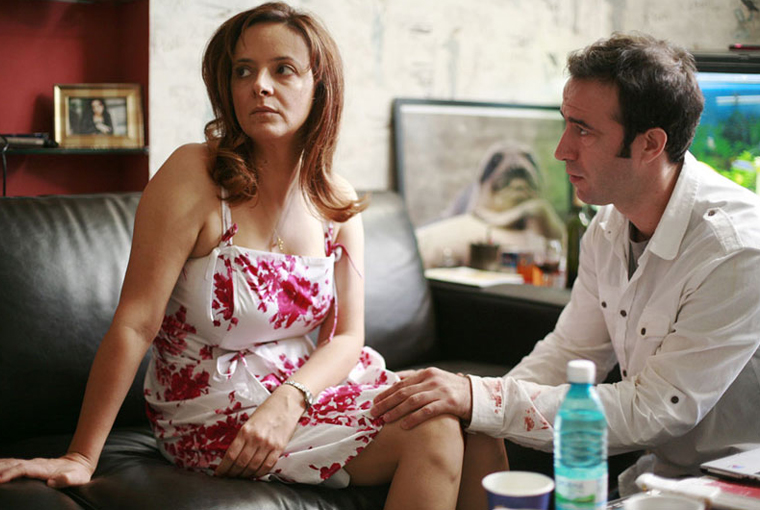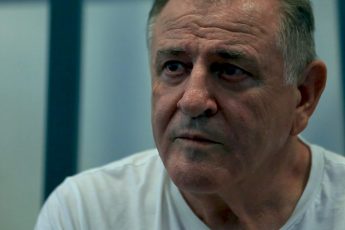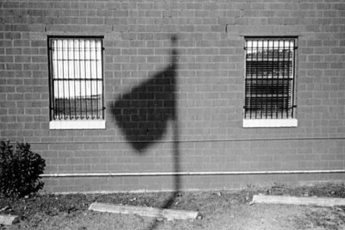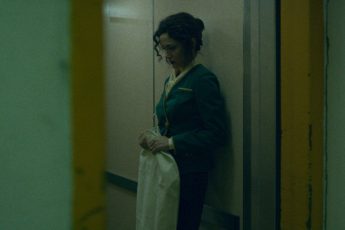Family on Film
Radu Jude’s Everybody in Our Family (Toata lumea din familia noastra, 2012)
Vol. 16 (April 2012) by Alina Popescu
Everybody in our Family is the story of a divorced couple disputing the custody of their only child. The script, written by Radu Jude and Corina Sabau, expands the idea of his previous short, Alexandra (2007) into a drama featuring more characters and situations. Some might be familiar with Radu Jude for his film debut The Happiest Girl in the World (2009), and for his acclaimed short Tube with a Hat (2006)..
The film opens with Marius, a fortysomething single man, who lives alone in his small flat. We then follow him through the city where he tries to find a gift for his daughter. As a devoted father, he plans to take her to the Black Sea for the weekend. But when he goes to his parents to borrow the car for the trip and the first family fight ensues, we get a glimpse of his real character. His hysterical father and submissive mother share his essential traits. He is an obstinate and victimized son.
Marius then arrives at his ex-wife’s apartment. She lives with their daughter, her mother, and her new boyfriend. The relationship between Marius and his ex-wife is respectful. But everything suddenly precipitates into a conflict, when Marius figures out that everybody tries to prevent him to go on vacation with his daughter. As in the scene with his parents, the shift from superficial normality and underlying tension is quickly established.
Tensions escalate into a destructive confrontation by some apparently insignificant words Marius and his ex-wife exchange. If up until this moment the story was not without a humorous effect, things turn dramatic when she calls the Police to complain about domestic violence. Dissatisfied with his role as a stand-in father with restricted parental authority, Marius finds no other way to put an end to this insurmountable conflict but to take his ex-wife and his child as hostages.
Guilt and reason, sense and sensibility are equally distributed on both sides and the story is attentively conducted so that we will not be tempted to make any prejudiced moral judgment about the characters. Nevertheless, we might feel a little more compassion for Marius, for whom the presentiment of losing his child tends to function as an excuse for his irrational behavior. In the end, however, the story is about the victim of the adults’ fight, the child who does not seem to understand what is going on around her.
Although interesting as an analysis of family relationships, the story is not served well by the script. It seems that Jude imagined this film as a comedy (he is known as a person with a good sense of humor and irony). Even if the film ends on a sad note, there are also some comic parts in this film. Unfortunately though, the search for humor is sometimes too obvious, and redundant dialogue undermines the dramatic tension of some scenes. Jude seems to hesitate in going deeper with the analysis of more profound feelings, and often switches the register too quickly from comedy to drama. As a result, the viewer does not really have time to retain a lasting impression from the twists and turns that occur in the characters’ behaviour along the story. This might also explain why the performance of the actors is at times hesitating, even though generally convincing.
At this point we should mention that the actors Serban Pavlu (as the father) and Mihaela Sirbu (as the mother) dealt honorably with very difficult leading roles. A special mention goes to the little girl (Sofia Nicolaescu), who once again proved her charm at the opening gala in Romania, when she said she enjoyed everything about the film, except the fights. Radu Jude also cast famous names from the old Romanian star system who can hardly find a place in the Romanian New Wave. Relying on the popularity of Stela Popescu and Alexandru Arsinel as Marius’ parents, or Tamara Buciuceanu-Botez as the mother-in-law, he saught to appeal to a wider audience.
Among the recent productions of the Romanian cinema, this film by Radu Jude would fit well in the “middle class, family issues” category, alongside with Tuesday, after Christmas, First of all, Felicia, Principles of Life or Best Intentions. Beside this common trait, another similarity is that the film employs techniques similar to those of the Romanian New Wave but without succeeding in turning them into something completely surprising: images of anonymous Bucharest, the communist – post-communist aesthetic of interiors and exteriors, the family meal scene, the harmless discussions that accompany the not-so-extraordinary family or couple life. The film direction is very accomplished, and Jude serves us once again that punch in the stomach he did so well with Alexandra. Under these circumstances, shall we regret the lack of minimalism?




Leave a Comment